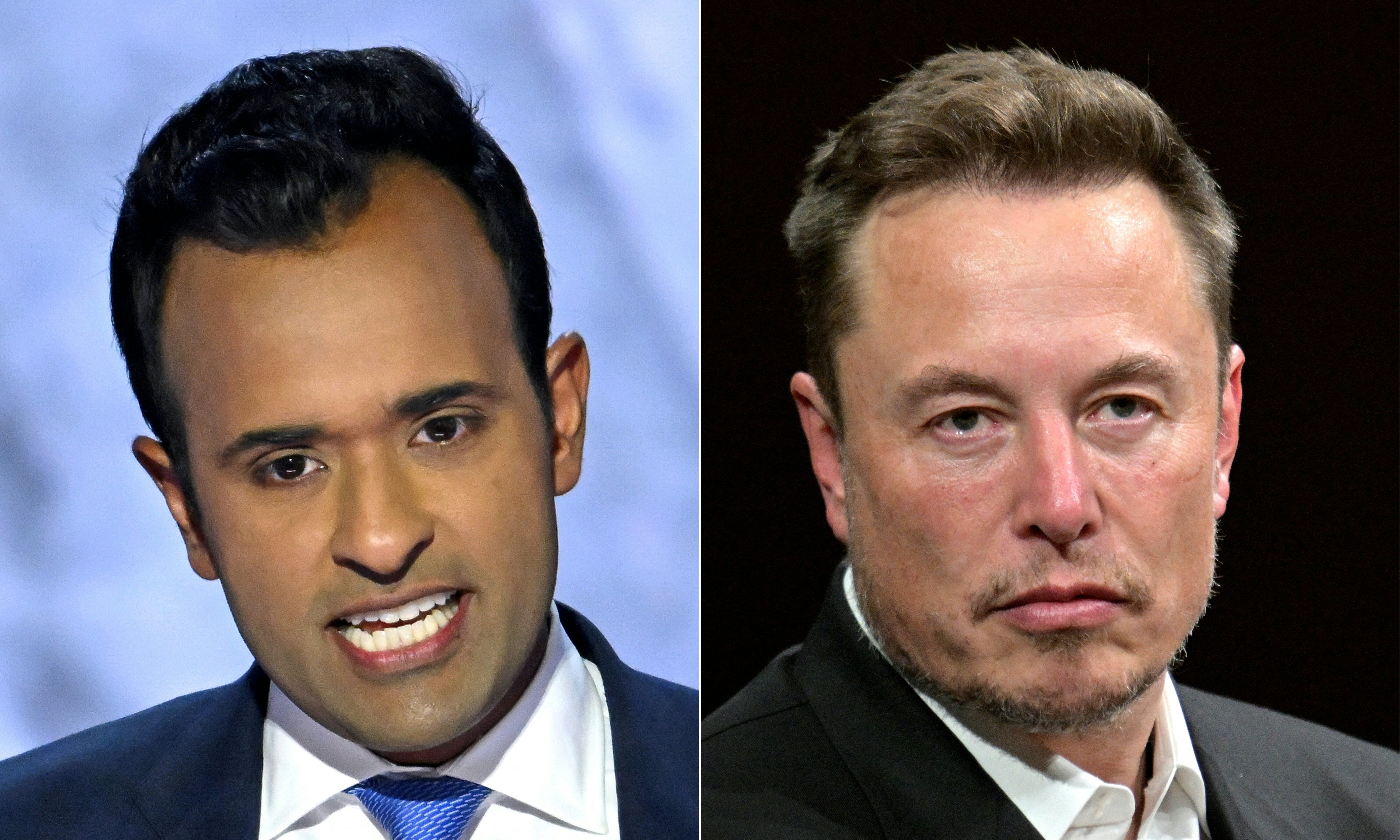Agents representing Donald Trump’s newly-formed “Department of Government Efficiency” (DOGE) – the non-governmental agency being spearheaded by tech billionaire duo Elon Musk and Vivek Ramaswamy – tasked with trimming excess federal spending – have already set to work, even before the new president has been inaugurated.
Surrogates for DOGE, which is still very much a work-in-progress, have already visited 12 federal agencies for preliminary interviews with staffers about the running of those workplaces, The Washington Post reports.
The Treasury Department, Internal Revenue Service and the departments of Homeland Security, Veterans Affairs and Health and Human Services are among the bureaus that have already answered the door to the agents and addressed their questions, according to the Post.
The development comes shortly after Musk, the world’s richest man, began to walk back his boast that DOGE would be able to find $2 trillion in savings as part of its mission to rein in bureaucracy and waste in Washington DC – which appears to be premised on proposing drastic cuts and mass firings, as occurred at Twitter after Musk acquired the social network in 2022 and rebranded it as X.
Taking part in a remote interview with Stagwell CEO Mark Penn as part of the CES tech trade show in Las Vegas, Nevada, on Wednesday, Musk was asked: “Do you think the $2 trillion is a realistic number now that you’re looking more closely at it?”
“I think we’ll try for $2 trillion. I think that’s the best-case outcome,” he answered.
“But I do think that you kind of have to have some overage. I think if we try for $2 trillion, we’ve got a good shot at getting $1 [trillion].”
Much is currently unknown about precisely how his department will operate, with its role ostensibly advisory and limited to making recommendations for the White House Office of Management and Budget to act upon as it sees fit.
There also appears to be a good chance that DOGE will encounter plenty of obstacles as it goes about its business, from both congressional Republicans reluctant to wave through large budget cuts that could impact their constituencies and career civil servants uncomfortable with Silicon Valley’s “disrupter” culture being let loose on the slow-moving and necessarily intricate machinery of Washington.
It is also currently unclear what authority the fledgling body currently has, how it fits into the wider Trump transition team’s schedule of briefings with staff from agencies it is about to assume control of and who, at this stage, is paying the agents’ salaries.

More generally, it is not obvious how DOGE hopes to go about driving change, with the next fiscal year for the US government not beginning until October 1 and spending for the current one being thrashed out on Capitol Hill under the leadership of House Speaker Mike Johnson.
Musk tried to incite a rebellion against Johnson last month over a stop-gap spending bill he took exception to, only for Johnson to break it up into separate legislation and pass many of the provisions he objected to anyway, with the speaker subsequently re-elected to a new term last week.
The Department of Defense was one agency that the GOP voted overwhelmingly to boost spending for in light of the ongoing wars in Ukraine and Gaza – it is also a bureau the billionaires had singled-out for downsizing.
What is known is that DOGE currently has around 50 staff working out of Musk’s SpaceX office in downtown DC and that hiring is continuing apace, with insiders telling the Post that the aim is to double the size of its employee roster by the time Trump is inaugurated on January 20.
Musk’s agency has already made executive appointments, adding the likes of Boring Company president Steve Davis and former Uber executive Emil Michael to oversee its project, with the president-elect also assigning political insiders Katie Miller and Bill McGinley to help out.
When advertising positions, DOGE has invited applications from “super high-IQ small-government revolutionaries willing to work 80+ hours per week on unglamorous cost-cutting” and has reportedly been using the encrypted messaging app Signal to orchestrate its efforts.
Immediately after Christmas, it said it was seeking personnel to work on its IT, HR and financial arms in full-time, salaried positions and has since put out a call for full-time software and information security engineers to join its ranks.



